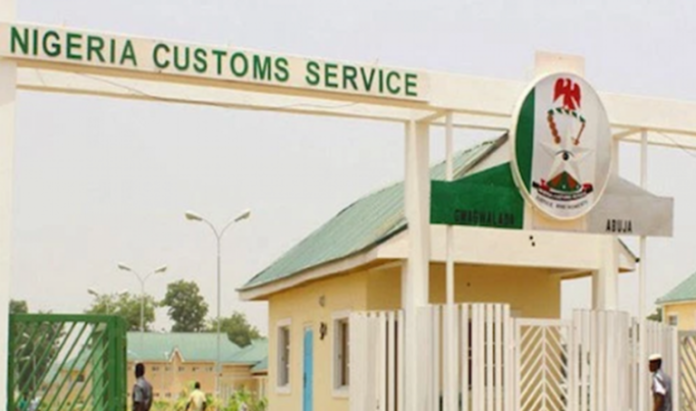‘The reintroduction of the charge was quite concerning for us and we were genuinely apprehensive that it would lead to a significant escalation in the cost of raw materials, machinery and spare parts that are not available locally and therefore have to be imported.’
Siaka MOMOH
The Manufacturers Association of Nigeria (MAN) has extolled the Federal Government, and the Minister of Finance & Coordinating Minister for the Economy over the recent suspension of the reintroduced 4% Free-on-Board charge on imports, which came into effect on August 4, 2025.
According to Director General of the Association, Segun Ajayi-Kadir mni, “this move comes as a relief to our members and the broader manufacturing sector, which has been anxiously concerned about the imposition of the charge”. The Association is confident that the Nigeria Customs Service (NCS), in keeping with its ongoing commendable reforms will swiftly communicate the directive to all relevant commands, so that the charge will go off its portal, while we earnestly await the full restoration of the B’Odogwu platform.
He stated that this has brought instant succour and encouragement to the manufacturing community in Nigeria and is a great news to the business community. “The Minister just saved our country from a self-inflicted price escalation that could have unsettled the widely acknowledged stability and repurposing this administration has achieved”. “Though it was meant to boost the much needed government revenue, the charge is akin to an “own goal” in a football match”.
Ajayi-Kadir argued: The reintroduction of the charge was quite concerning for us and we were genuinely apprehensive that it would lead to a significant escalation in the cost of raw materials, machinery and spare parts that are not available locally and therefore have to be imported.
“We reiterate our commitment to working with the Government and the NCS to streamline trade processes, reduce the cost of doing business at the port and enhance fiscal transparency. This is the best way to guarantee an efficient and friendlier trade facilitation ecosystem for the business community and by extension the overall wellbeing of the Nigeria citizenry.
“We had outlined the basis for our objection to the charge, after a technical assessment and extensive consultation with our more than 2,500 members, who operate in 10 sectors and more than 60 sub-sectors across the country. It became evident that the cost implication of the 4% FOB charge was significantly higher than the combined effect of the subsisting 7% surcharge and 1% CISS, thereby impacting heavily on the cost of our inputs; the higher cost will be passed on to consumers and this will fuel inflation, which already stands at 21.88% as at July 2025, and undermine the prevailing struggle with high inflation; the comparable prevailing rates within the West African subregion range between 0.5%–1% and so maintaining a 4% FOB would directly skyrocket the cost of doing business, incentivize informal crossborder sourcing, cargo diversion and encourage underdeclaration”.
He added: “Overall, we were convinced that a reversal was necessary in order to give a boost to the efforts of the government at reducing the costs of local production, deepen domestic value chain addition and economic diversification. As an association representing the interests of manufacturers across various sectors, MAN believes that this decision will have a positive impact on the sector, enabling businesses to remain competitive and grow. We applaud the government for listening to the concerns of stakeholders and taking swift action to redress the issue.
“Going forward and in keeping with our long established tradition of constructive engagement with the Government and the NCS we call for the conduct of an inclusive and independent assessment to ascertain the adequacy or inadequacy of the subsisting charges (7% surcharge and 1% CISS) and the possible implications of the introduction of a higher charge on the delicate inflation trend, the cost of living for about 230 million Nigerians, and the struggling manufacturing sector and the economy at large.”
MAN has further recommended that the Government should organise an inclusive stakeholders’ consultation to determine the appropriate level of charges that will guarantee the efficient performance of NCS; be in line with prevailing trends and quite importantly, promote increased productivity.
Said MAN: “Government should review the outcomes of the above listed measures and ensure its alignment with the spirit and letters of the recently introduced Tax Laws, so that they are mutually reinforcing and not at variance.
“We are confident that this is to demonstrate the NCS’s intentional alignment with prevailing best practices among comparable economies and be supportive of the productive sector of the economy.We urge the Federal Government to continue implementing policies that promote industrialization, reduce the cost of doing constraints that hamper manufacturing growth and economic development. MAN remains committed to working collaboratively with the government to create a conducive business environment that fosters sustainable economic growth and development.”



